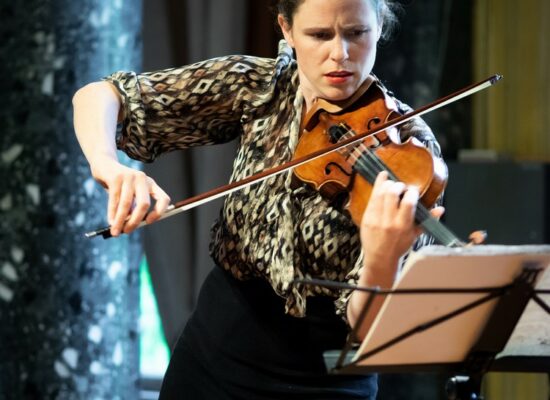My own idea, of which I have become fully conscious since I found myself as a composer, is the brotherhood of peoples, brotherhood in spite of all wars and conflicts. I try, to the best of my ability, to serve this idea in music; therefore I do not reject any influence, be it Slovakian, Romanian, Arabic or from any other source. The source must only be clean, fresh and healthy! These words of Bartók, who like Veress had to flee his native Hungary, reflect Nurit Stark’s belief that music can cross all borders. Stark is the third outstanding violinist taking part in this Festival. Apart from her exceptional virtuosity she has the gift of being able to shed new light on familiar compositions such as Bartók’s Solo Sonata. Like the Schumann and Beethoven that we heard earlier, this is another late work with the added weight of being composed in unhappy wartime exile. Bartók picked up the challenge of Bach’s three Solo Sonatas, four movements in slow-fast-slow-fast tempi with an extraordinary fugue placed second and a brilliant
Presto fourth. Veress was a student of Bartók and like his teacher suffuses his music with the freedom and improvisatory character of folk music.
